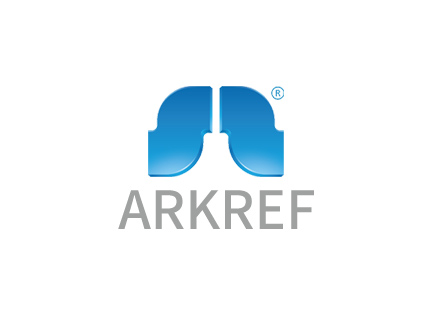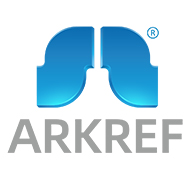Why Cold Rooms Are Key to Fresh Products
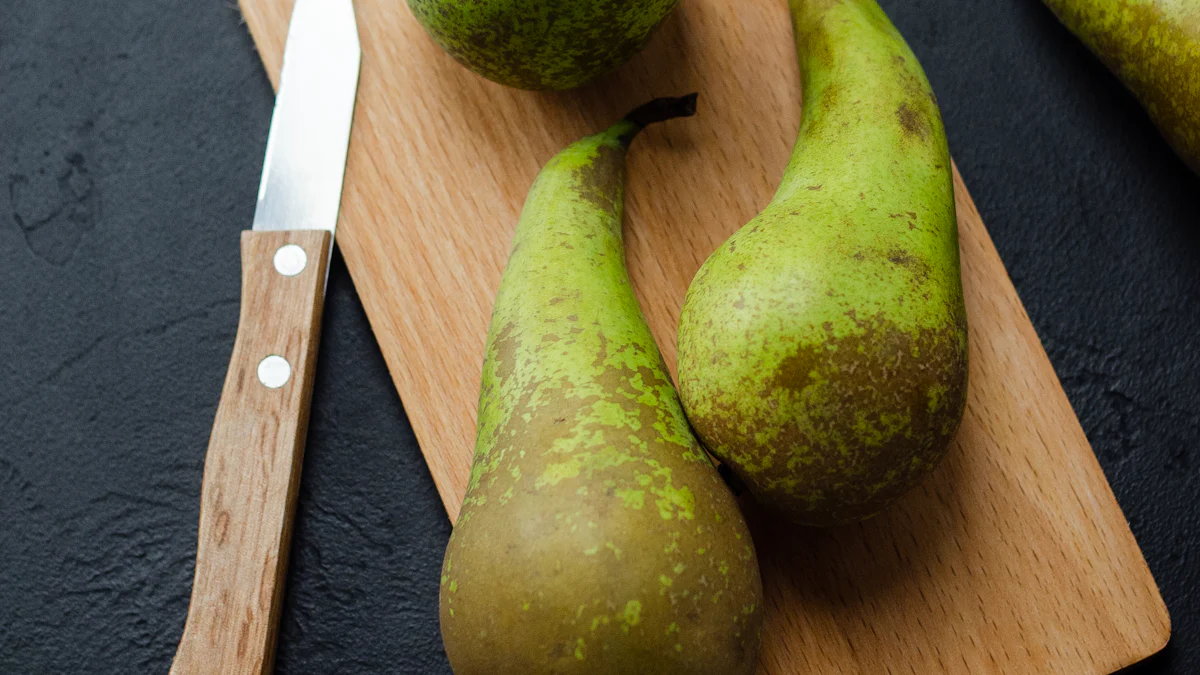
A cold room plays a vital role in preserving the quality of perishable goods. It creates a controlled environment where temperature and humidity levels are optimized to maintain freshness. Businesses like restaurants, grocery stores, and pharmaceutical companies rely on these spaces to store products safely. By preventing spoilage, cold rooms help you reduce waste and save money. They also ensure compliance with strict industry standards, making them indispensable for maintaining product integrity and safety.
Key Takeaways
Cold rooms are essential for preserving the quality and safety of perishable goods, ensuring they remain fresh and ready for consumption.
Maintaining optimal temperature and humidity levels in cold rooms extends the shelf life of products, reducing spoilage and waste.
Investing in a cold room can lead to significant long-term financial benefits by lowering operating costs and improving profit margins.
Cold rooms help businesses comply with industry standards, ensuring food safety and product integrity, which builds consumer trust.
Customizable cold rooms can be tailored to meet specific storage needs, enhancing operational efficiency and adaptability as businesses grow.
Utilizing advanced temperature monitoring systems in cold rooms allows for real-time alerts, preventing potential losses due to temperature fluctuations.
A cold room is not just a storage solution; it is a strategic investment that enhances customer satisfaction and supports business growth.
Preserving Product Quality with Cold Rooms
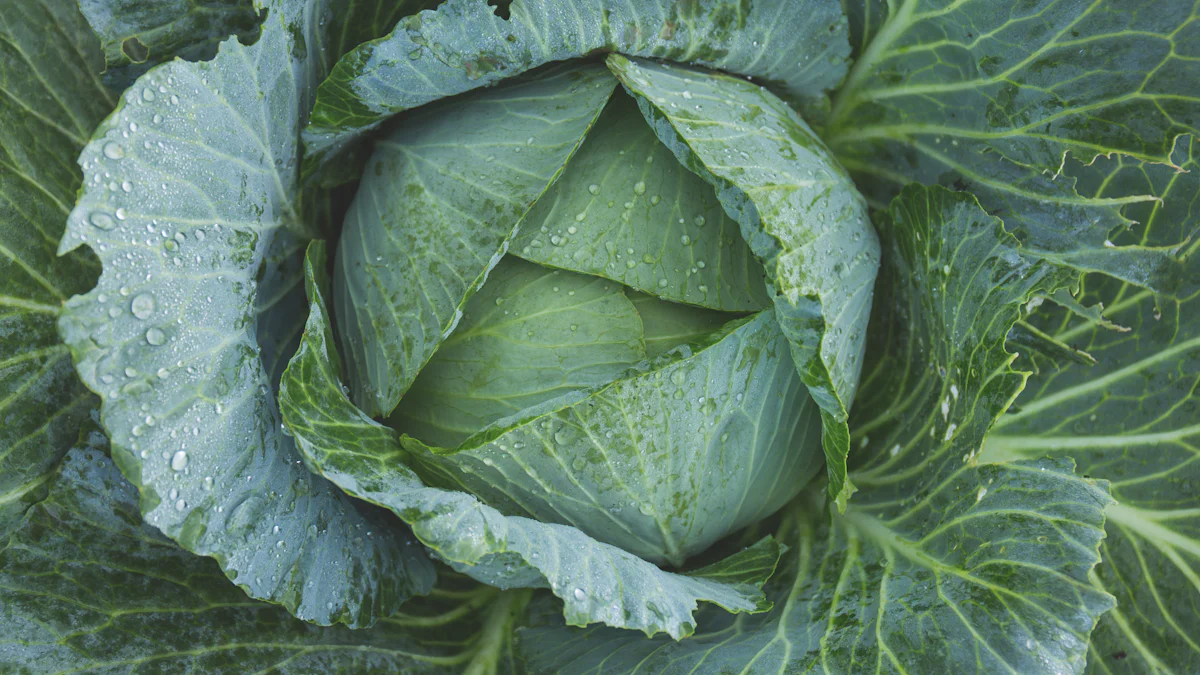
Cold rooms play a crucial role in maintaining the quality of perishable goods. They provide a controlled environment where temperature and humidity levels are carefully regulated. This ensures that products remain fresh, safe, and ready for consumption or use. By investing in a cold room, you can protect your inventory and deliver high-quality goods to your customers.
Maintaining Optimal Temperatures for Freshness
Temperature control is the foundation of any cold room. Perishable items, such as fruits, vegetables, dairy, and meat, require specific temperature ranges to stay fresh. A cold room allows you to set and maintain these optimal conditions. For example, fresh produce thrives at temperatures between 32°F and 41°F, while frozen goods need to be stored at 0°F or below. By keeping products at their ideal temperatures, you can preserve their texture, flavor, and nutritional value.
Modern cold rooms often feature advanced temperature monitoring systems. These systems alert you to any fluctuations, helping you address issues before they affect your products. This level of precision ensures that your goods remain in peak condition, even during extended storage periods.
Extending Shelf Life and Preventing Spoilage
Spoilage is a significant challenge for businesses handling perishable goods. Without proper storage, items can deteriorate quickly, leading to waste and financial losses. A cold room helps you combat this issue by extending the shelf life of your products. For instance, dairy products stored in a cold room can last several weeks longer than those kept at room temperature.
By slowing down the growth of bacteria and other microorganisms, cold rooms reduce the risk of spoilage. This not only saves you money but also ensures that your customers receive safe and high-quality products. Whether you run a restaurant, grocery store, or pharmaceutical company, a cold room is an essential tool for minimizing waste and maximizing efficiency.
Examples of Perishable Products That Require Cold Storage
Many industries rely on cold rooms to store a wide range of perishable goods. Here are some examples:
Food and Beverages: Fresh produce, dairy products, meat, seafood, and beverages all require cold storage to maintain their quality and safety.
Pharmaceuticals: Vaccines, medications, and other pharmaceutical products must be stored at specific temperatures to remain effective.
Floral Products: Flowers and plants benefit from cold storage, which helps them retain their freshness and appearance.
Agricultural Goods: Seeds, grains, and other agricultural products often require cold storage to prevent spoilage and maintain viability.
Cold rooms have become indispensable across these industries. They ensure that products reach consumers in the best possible condition, enhancing customer satisfaction and building trust in your brand.
Reducing Waste and Saving Costs
Cold rooms are essential for businesses aiming to minimize waste and optimize expenses. By providing a controlled environment, they help you store perishable goods safely and efficiently. This section explores how cold rooms can reduce spoilage, improve inventory management, and deliver long-term financial benefits.
Minimizing Spoilage-Related Losses
Spoilage often leads to significant financial losses for businesses handling perishable items. Without proper storage, products like fresh produce, dairy, and meat can deteriorate quickly. A cold room helps you combat this issue by maintaining the ideal temperature and humidity levels for your goods. For example, storing fruits and vegetables in a cold room can slow down ripening and decay, ensuring they remain fresh for longer periods.
Businesses with cold rooms experience fewer spoilage-related losses compared to those without them. By preserving the quality of your inventory, you can reduce waste and maximize the value of your products. This not only saves money but also supports sustainable practices by minimizing discarded goods.
Efficient Inventory Management Through Cold Storage
Efficient inventory management is crucial for businesses with extensive stock. Cold rooms provide ample storage space, allowing you to organize and monitor your inventory effectively. With a cold room, you can categorize products based on their storage requirements, ensuring each item is kept under optimal conditions.
Advanced temperature monitoring systems in modern cold rooms further enhance inventory management. These systems alert you to any changes in temperature, enabling you to address potential issues promptly. By maintaining consistent storage conditions, you can avoid unexpected losses and ensure your products are always ready for use or sale.
Additionally, cold rooms help you plan your inventory more accurately. With reduced spoilage, you can stock up on larger quantities of perishable goods without worrying about waste. This allows you to meet customer demands consistently while keeping your operational costs under control.
Long-Term Financial Benefits of Cold Rooms
Investing in a cold room offers substantial financial advantages over time. While the initial cost may seem significant, the long-term savings outweigh the expense. By reducing spoilage and waste, you can lower your overall operating costs and improve your profit margins.
Cold rooms also enhance the efficiency of your business operations. With better inventory management, you can minimize overstocking and understocking issues. This leads to fewer emergency purchases and reduced transportation costs, further contributing to your financial stability.
Moreover, businesses with cold rooms often gain a competitive edge in their industries. By consistently delivering high-quality products, you can build trust with your customers and strengthen your brand reputation. This not only boosts customer loyalty but also attracts new clients, driving growth and profitability for your business.
"Cold rooms are not just a storage solution; they are a strategic investment that safeguards your products and supports your business's financial health."
Ensuring Compliance with Industry Standards
Compliance with industry standards is essential for businesses that rely on cold storage. It ensures the safety, quality, and integrity of your products while protecting your business from legal and financial risks. By adhering to these standards, you can maintain consumer trust and meet the expectations of regulatory authorities.
Meeting Food Safety and Hygiene Regulations
Food safety regulations require strict adherence to proper storage practices. Cold rooms help you meet these requirements by maintaining the correct temperature and humidity levels for perishable goods. For example, the FDA Food Code mandates specific temperature ranges for storing meat, dairy, and produce to prevent bacterial growth and contamination.
A well-maintained cold room ensures that your food products remain safe for consumption. Regular cleaning and sanitation of the storage area are equally important. By implementing these practices, you can avoid violations that may lead to product recalls, financial losses, or damage to your reputation.
"Proper cold storage is not just a recommendation; it is a legal obligation for businesses handling perishable goods."
Maintaining Pharmaceutical Product Integrity
Pharmaceutical products, including vaccines and temperature-sensitive drugs, require precise storage conditions. Cold rooms designed for pharmaceuticals ensure that these products remain effective and safe for use. Regulatory bodies like the World Health Organization (WHO) and the FDA have established guidelines for storing medicines at specific temperatures.
For instance, vaccines often need to be stored between 35°F and 46°F to preserve their efficacy. A cold room equipped with advanced temperature monitoring systems helps you maintain these conditions consistently. Any deviation from the required temperature range can compromise the quality of the products, leading to potential health risks and regulatory penalties.
By investing in a reliable cold room, you can safeguard the integrity of your pharmaceutical inventory and comply with industry standards. This not only protects your business but also ensures the well-being of your customers.
Adhering to Storage Guidelines for Perishables
Different perishable goods have unique storage requirements. Cold rooms allow you to adhere to these guidelines by providing customizable temperature and humidity settings. For example:
Fresh Produce: Requires temperatures between 32°F and 41°F to retain freshness and nutritional value.
Seafood: Needs to be stored at 30°F to 34°F to prevent spoilage.
Dairy Products: Must be kept at 36°F to 39°F to maintain quality and safety.
Failure to follow these guidelines can result in product spoilage, financial losses, and non-compliance with regulatory standards. A cold room helps you avoid these issues by offering a controlled environment tailored to the needs of your products.
By adhering to storage guidelines, you can ensure that your goods reach consumers in optimal condition. This not only enhances customer satisfaction but also strengthens your brand's reputation for quality and reliability.
Industries That Rely on Cold Rooms
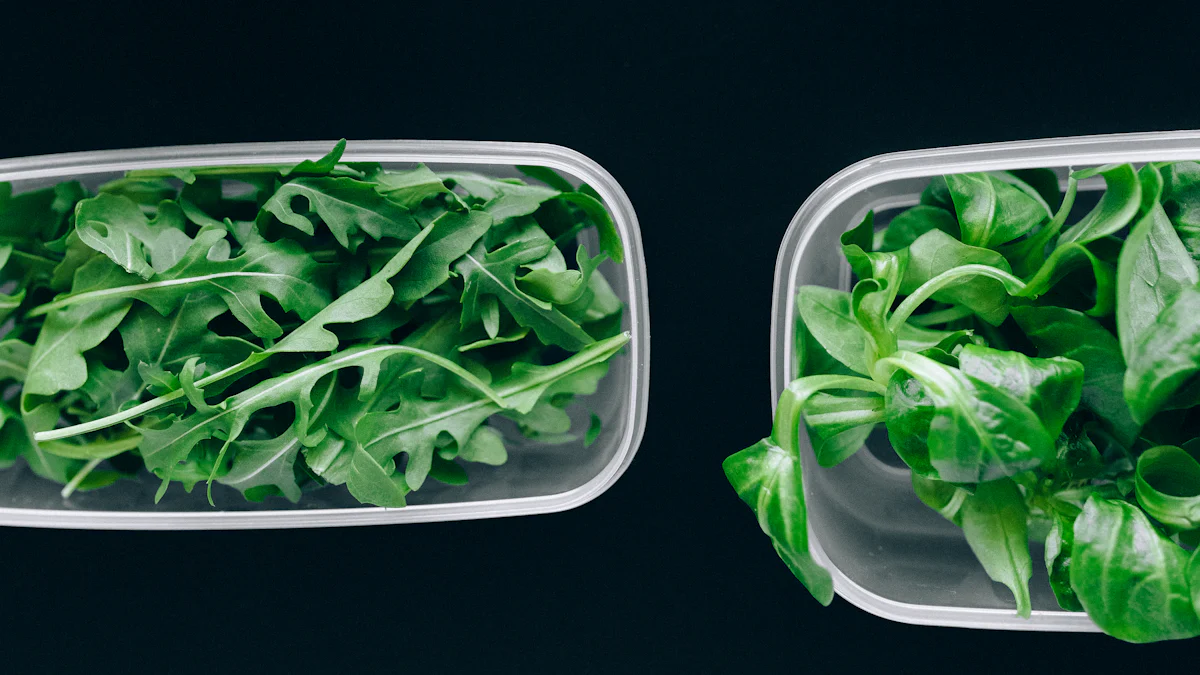
Cold rooms serve as a cornerstone for various industries, ensuring products remain fresh, safe, and effective. By maintaining precise temperature and humidity levels, they provide the ideal environment for preserving goods. Below are some key industries that heavily depend on cold rooms to sustain their operations.
Food and Beverage Businesses
Food and beverage businesses rely on cold rooms to maintain the quality and safety of their products. From raw ingredients to finished goods, cold rooms ensure that everything stays at the right temperature. For example, fresh produce, dairy, meat, and seafood require specific storage conditions to prevent spoilage. Without proper refrigeration, these items can deteriorate quickly, leading to waste and financial losses.
Restaurants and commercial kitchens also benefit greatly from cold rooms. They use these spaces to store large quantities of ingredients, keeping them fresh for longer periods. This not only reduces waste but also ensures that customers receive high-quality meals. Grocery stores and food distributors depend on cold rooms to preserve inventory before it reaches consumers. By investing in a cold room, you can enhance the efficiency of your food business and deliver superior products to your customers.
"Every good quality restaurant or commercial kitchen requires a great Cold Room to keep food fresher for longer."
Floral and Agricultural Sectors
The floral and agricultural sectors depend on cold rooms to maintain the freshness and viability of their products. Flowers, for instance, are highly perishable and require controlled environments to retain their beauty and fragrance. Cold rooms help florists and flower distributors extend the shelf life of their products, ensuring they reach customers in pristine condition.
In agriculture, cold rooms play a vital role in preserving seeds, grains, and harvested crops. These items often need specific temperature and humidity levels to remain viable for planting or consumption. For example, storing fruits and vegetables in a cold room slows down ripening and decay, allowing farmers to distribute their produce over a longer period. By using cold rooms, you can protect your agricultural investments and reduce post-harvest losses.
Pharmaceutical and Healthcare Industries
The pharmaceutical and healthcare industries rely on cold rooms to store temperature-sensitive products. Vaccines, medications, and laboratory specimens require precise storage conditions to remain effective. For instance, vaccines often need to be kept between 35°F and 46°F to preserve their efficacy. A cold room ensures these conditions are consistently met, safeguarding the integrity of these critical items.
Hospitals and research facilities also use cold rooms to store medical supplies and biological samples. These environments prevent contamination and degradation, ensuring the safety and reliability of stored materials. By investing in a cold room, you can comply with industry standards and protect the health and well-being of your patients or clients.
"Cold rooms are indispensable in many industries, offering controlled environments for preserving food, pharmaceuticals, laboratory specimens, and more."
Features to Consider When Choosing a Cold Room
When selecting a cold room for your business, you must evaluate specific features to ensure it meets your operational needs. A well-chosen cold room not only preserves product quality but also enhances efficiency and reduces costs. Below are the key features to consider when making your decision.
Advanced Temperature Control and Monitoring
Precise temperature control is essential for maintaining the integrity of perishable goods. Modern cold rooms come equipped with advanced temperature monitoring systems that allow you to set and maintain specific conditions. These systems provide real-time alerts if the temperature fluctuates, enabling you to address potential issues immediately.
For example, storing fresh produce at temperatures between 32°F and 41°F ensures freshness and prevents spoilage. Similarly, frozen goods require consistent temperatures of 0°F or below. Advanced monitoring systems help you achieve these conditions effortlessly, ensuring your products remain in optimal condition.
Additionally, some cold rooms feature automated controls that adjust temperature and humidity levels based on the type of goods stored. This level of precision minimizes human error and guarantees consistent storage conditions, even during extended periods.
"Investing in a cold room with advanced temperature control safeguards your inventory and ensures product quality."
Energy Efficiency and Eco-Friendly Options
Energy efficiency plays a significant role in reducing operational costs. A well-designed cold room uses high-quality insulation materials to retain cold air for longer periods. This reduces the workload on cooling systems, lowering energy consumption and cutting down on utility bills.
Eco-friendly options, such as energy-efficient compressors and LED lighting, further enhance sustainability. These features not only reduce your carbon footprint but also align with modern environmental standards. For instance, insulated doors and floors in freezer rooms help maintain low temperatures efficiently, minimizing energy waste.
When choosing a cold room, look for models that meet energy efficiency certifications. These certifications indicate that the unit adheres to industry standards for sustainable operation. By prioritizing energy-efficient designs, you can save money while contributing to environmental conservation.
"An energy-efficient cold room is an investment that pays off through lower running costs and a reduced environmental impact."
Customizable Designs for Business-Specific Needs
Every business has unique storage requirements. Customizable cold rooms allow you to tailor the design to fit your specific needs. Whether you need additional shelving, multiple doors, or specialized lighting, a custom-built cold room can accommodate these preferences.
For example, businesses with limited space can opt for compact designs, while those handling large inventories may require expansive layouts. Customization also extends to temperature zones, enabling you to store different types of products in a single unit. This flexibility ensures maximum efficiency and convenience.
Standard modular cold rooms offer a quick and cost-effective solution for businesses with straightforward needs. However, if your operations demand an unusual size or layout, bespoke cold rooms provide the perfect solution. With proper planning and design, you can create a cold room that enhances your workflow and optimizes storage capacity.
"Customizable cold rooms adapt to your business, ensuring you get the most out of your investment."
Long-Term Advantages of Cold Room Investments
Investing in a cold room offers more than just a storage solution. It provides long-term benefits that enhance your business operations, improve customer relationships, and support future growth. Below are the key advantages you can expect when you make this strategic investment.
Boosting Customer Satisfaction and Loyalty
A cold room ensures that your products maintain their freshness and quality. When customers receive goods that meet or exceed their expectations, they are more likely to return. For example, fresh produce stored in optimal conditions retains its texture, flavor, and nutritional value. This level of quality builds trust and encourages repeat purchases.
By consistently delivering high-quality products, you create a positive experience for your customers. Satisfied customers often share their experiences with others, helping you attract new clients. Over time, this strengthens customer loyalty and positions your business as a reliable provider in your industry.
"Customer satisfaction is the foundation of loyalty. A cold room helps you achieve this by preserving the quality of your products."
Enhancing Business Reputation and Credibility
Your reputation depends on the quality and reliability of your products. A cold room allows you to maintain these standards by providing a stable environment for perishable goods. Businesses that consistently deliver fresh and safe products earn credibility in their markets.
For instance, food businesses that use cold rooms can confidently meet food safety regulations. This compliance not only protects your customers but also enhances your brand's image. Similarly, pharmaceutical companies that store temperature-sensitive products in cold rooms demonstrate their commitment to quality and safety.
A strong reputation attracts more customers and opens doors to new opportunities. Whether you operate in the food, floral, or healthcare industry, a cold room reinforces your credibility and sets you apart from competitors.
Supporting Scalability and Future Growth
As your business grows, your storage needs will evolve. A cold room provides the flexibility to scale your operations without compromising product quality. Whether you need to store larger quantities of goods or diversify your inventory, a cold room can adapt to your requirements.
Customizable designs allow you to modify your cold room as your business expands. For example, you can add shelving, adjust temperature zones, or increase storage capacity. This adaptability ensures that your cold room remains a valuable asset, even as your operations grow.
By investing in a cold room, you prepare your business for future challenges and opportunities. It supports your scalability, enabling you to meet increasing customer demands while maintaining efficiency and quality.
"A cold room is not just an investment for today; it is a foundation for your business's future growth."
A cold room is an essential investment for any business handling perishable goods. It helps you maintain product quality, reduce waste, and save costs while ensuring compliance with industry regulations. By choosing the right cold room, you can protect your inventory and deliver superior products to your customers. This investment not only enhances customer satisfaction but also supports the long-term success of your business. Take the step to secure your products and strengthen your operations by considering a cold room for your storage needs.
FAQ
What are the benefits of cold rooms?
Cold rooms offer numerous advantages for businesses handling perishable goods. They provide ample storage space, ensuring you can organize and store products efficiently. By maintaining optimal temperatures, cold rooms help preserve the quality and safety of items like food, pharmaceuticals, and flowers. Additionally, they improve food safety by reducing the risk of contamination. Modern cold rooms also reduce energy costs through advanced insulation and energy-efficient systems.
Key takeaway: A cold room is not just a storage solution; it is a tool that enhances product quality, safety, and operational efficiency.
What should businesses consider when selecting a cold room?
When choosing a cold room, you must evaluate your specific needs. Consider the type of products you store, the required temperature range, and the available space. Manufacturers often provide guidelines to help you identify the right cold room for your business. Selecting a cold room that aligns with your requirements prevents unnecessary waste and expense. Customizable options, such as adjustable shelving or multiple temperature zones, can further enhance its functionality.
Pro tip: Always choose a cold room that matches your business's unique demands to maximize efficiency and minimize costs.
How do cold rooms help reduce waste?
Cold rooms extend the shelf life of perishable goods by maintaining consistent temperatures and humidity levels. This slows down spoilage and bacterial growth, ensuring your products stay fresh for longer. By reducing waste, you save money and contribute to sustainable practices. For example, storing fruits and vegetables in a cold room prevents premature ripening and decay, allowing you to sell or use them over an extended period.
Fact: Businesses with cold rooms experience significantly fewer spoilage-related losses compared to those without proper storage solutions.
Are cold rooms energy-efficient?
Modern cold rooms are designed with energy efficiency in mind. High-quality insulation materials and energy-efficient compressors minimize energy consumption. Features like LED lighting and automated temperature controls further reduce operational costs. By investing in an energy-efficient cold room, you not only save money but also reduce your environmental impact.
Did you know? Energy-efficient cold rooms can lower utility bills while aligning with eco-friendly business practices.
Can cold rooms be customized?
Yes, cold rooms can be tailored to meet your specific needs. You can customize features like shelving, door placement, and temperature zones. For businesses with limited space, compact designs are available. If you handle diverse products, you can opt for multi-temperature zones within a single unit. Customization ensures your cold room fits seamlessly into your operations.
Tip: Discuss your storage needs with the manufacturer to design a cold room that maximizes efficiency and convenience.
What industries benefit the most from cold rooms?
Cold rooms are essential across various industries. Food and beverage businesses use them to store fresh produce, dairy, meat, and seafood. The pharmaceutical industry relies on cold rooms to preserve vaccines and temperature-sensitive medications. Florists and agricultural sectors use cold rooms to maintain the freshness of flowers and crops. These industries depend on cold rooms to ensure product quality and safety.
Insight: Cold rooms are a cornerstone for industries that prioritize freshness, safety, and reliability.
How do cold rooms ensure compliance with regulations?
Cold rooms help businesses meet strict industry standards for food safety, pharmaceutical storage, and hygiene. They maintain precise temperature and humidity levels, ensuring products remain safe and effective. For example, the FDA mandates specific storage conditions for food and drugs. A well-maintained cold room helps you adhere to these guidelines, avoiding legal and financial risks.
Reminder: Compliance with regulations protects your business and builds trust with your customers.
How long does it take to install a cold room?
The installation time for a cold room depends on its size and complexity. Standard modular cold rooms can be set up quickly, often within a few days. Custom-built cold rooms may take longer due to design and construction requirements. Working with experienced professionals ensures a smooth and timely installation process.
Advice: Plan your installation timeline carefully to avoid disruptions to your operations.
What maintenance does a cold room require?
Regular maintenance is crucial for the efficient operation of a cold room. This includes cleaning the interior, checking temperature controls, and inspecting insulation and door seals. Routine servicing of cooling systems ensures optimal performance and prevents breakdowns. By maintaining your cold room, you extend its lifespan and protect your stored products.
Tip: Schedule regular maintenance checks to keep your cold room running efficiently and avoid costly repairs.
Is a cold room a good investment for small businesses?
Absolutely. A cold room helps small businesses reduce waste, improve product quality, and save costs in the long run. While the initial investment may seem significant, the benefits outweigh the expense. By preserving inventory and enhancing customer satisfaction, a cold room supports the growth and success of small businesses.
Takeaway: A cold room is a strategic investment that pays off through improved efficiency and customer loyalty.
See Also
The Importance of Cold Rooms in Preservation
Steps to Create a Cold Room for Fresh Foods
Comparing Container Cold Rooms and Conventional Storage
